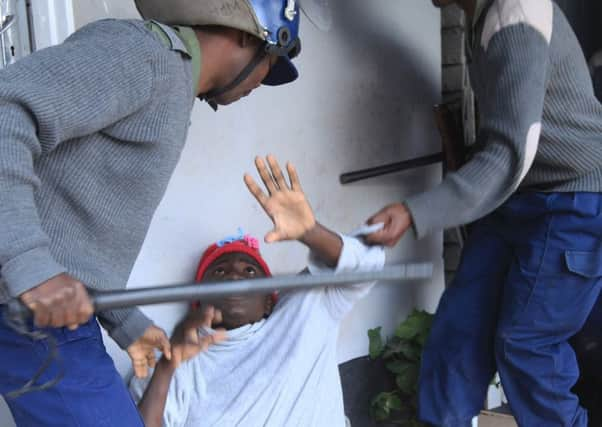Tear gas and water cannon deployed on protesters in Zimbabwe


The violence came amid a surge in protests in recent weeks because of increasing economic hardship and alleged mismanagement by the government of president Robert Mugabe.
The protesters blocked roads leading into the centre of Harare, forcing many people to walk up to six miles to get to work. Rioters threw stones at police and vehicles, and some children on their way to school were caught up in the chaos.
Advertisement
Hide AdAdvertisement
Hide AdOutnumbered police later sought to negotiate with the crowds after failing to disperse thousands of protesters, who were concentrated in Harare’s eastern suburbs. Many rioters were young men who cannot find regular employment and make a living off drivers by charging a small fee to load passengers into minibuses.
The drivers’ grievances stem from anger over numerous roadblocks that police sometimes set up in city streets, which drivers allege are to demand bribes. Police recently promised to reduce the number of roadblocks after complaints from parliamentarians, tourism operators and others.
Such acts of defiance and clashes with the police are rare in Zimbabwe, although the government deployed the army against 1998 riots over soaring food prices.
Mugabe, 92, has ruled the southern African country since independence from white minority rule in 1980, scoffing at frequent claims of human rights violations.
Frustrations over rapidly deteriorating economic conditions in Zimbabwe, compounded by dissatisfaction over alleged government corruption and incompetence, have resulted in near-daily protests in recent weeks. On Friday, protesters burned a warehouse at Beitbridge, a busy border post between Zimbabwe and South Africa, over a Zimbabwean decision to ban a wide range of imports.
Seventeen people appeared in court on Sunday over the Beitbridge protests and were charged with public violence.
Separately, state hospital doctors and other government workers said they will strike over the government’s failure to pay their June salaries on time.